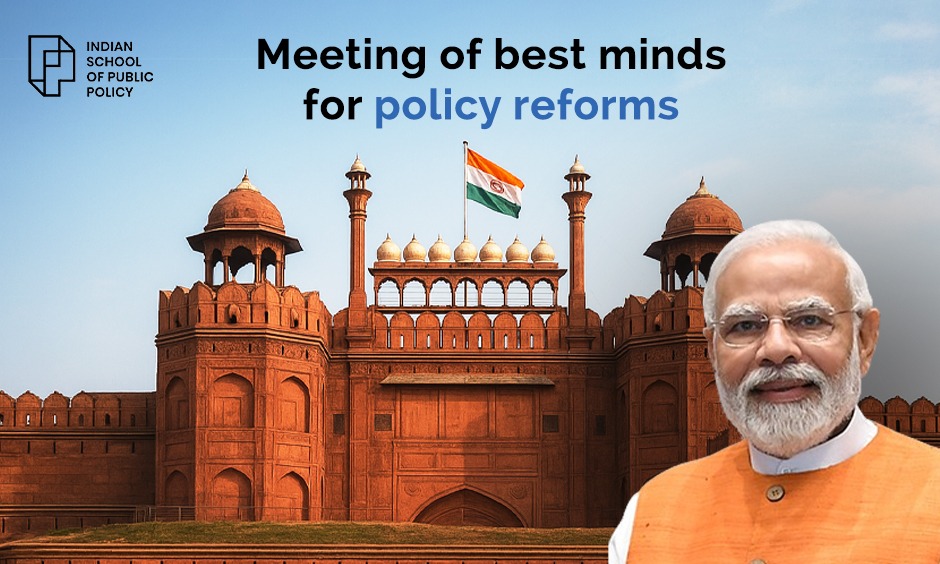Table of Contents
Meeting of Best Minds for Policy Reforms

Reform, Perform, and Transform were the policy making keywords in the past decade, but now new strengths need to be added to our efforts. This was one part of the speech by Prime Minister Narendra Modi from the ramparts of Red Fort on India’s 79th Independence Day, 2025.
The PM added that the government has abolished more than 40,000 unnecessary compliances and scrapped over 1,500 obsolete laws, besides the Parliament is working to amend dozens of laws in order for the country to have a simplified structure.
The PM also talked about constitution of a Task Force for new generation reforms, aimed at accelerating India’s economic growth and realising the vision of India becoming a developed nation by 2047. Mr Modi emphasized that the Task Force will work within a timeframe to align with this vision.
India’s Position in Global Innovation Rankings
India ranked 39th amongst 133 countries featured in the Global Innovative Index, 2024 by the UN agency, World Intellectual Property Organization (WIPO). Besides, it ranked 1st amongst 38 lower-middle-income group economies.
While India may improve its global ranking on various indices, it is critical that a larger stakeholder pool be created for policy making and reforms under the Task Force. For, policy design and implementation demand expertise in understanding regulatory mandates, data analytics, and implementation tools.
Role of Think Tanks and Academic Institutions
The Task Force should comprise of experts from think tanks, public policy research and educational institutes, and not for profit institutions. For, the best minds will come up with faster and practical solutions while still being mindful of the financial and manpower related resource constraints with the government. Further, with multi-disciplinary faculty offering a pool of thinking minds, and by virtue of their research exposure, these bodies will help translate conceptual knowledge into actionable policy recommendations.
Policy Documents to Grassroot Implementation
From drafting of policy documents to assisting in implementation upto the grassroot levels—such institutes will come in handy to the Task Force in combining forecasting fiscal and legal influences with community and civic responses.
This approach, if adopted by the government, will also help the Task Force accomplish its intended outcome within the expected time period.
Global Best Practices: Role of Academia in Policy Making
The U.S. Public Policy Model
Academic institutions in the US play a multi-faceted role in public policy through research, training, providing expert consultation, and engaging in public discourses. University faculty, composed of subject matter experts, have been contributing significantly in policy making by writing research papers, testifying before Congress, and publishing their findings, more specifically in issues related to climate change or public health crises. Being non-partisan global experts, they help shape public policy and expedite decision-making.
The U.K. Public Policy Model
Similarly, in the UK, universities contribute to public policy through evidence-based research, providing programmes for future policymakers, by being neutral advisors to government and stakeholders on complex societal issues.
India’s Way Forward
Currently, in India such participation is limited. Adopting best practices from developed economies will help the government achieve its targets on reforms through the Task Force and instill confidence in global investors.



